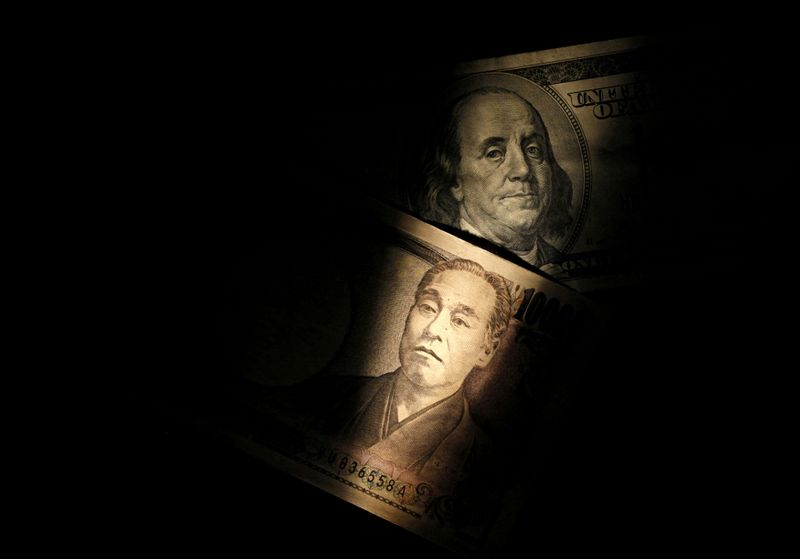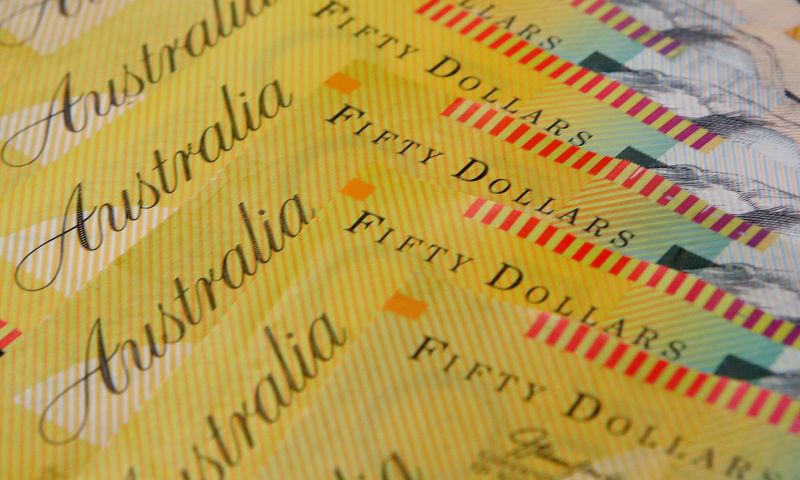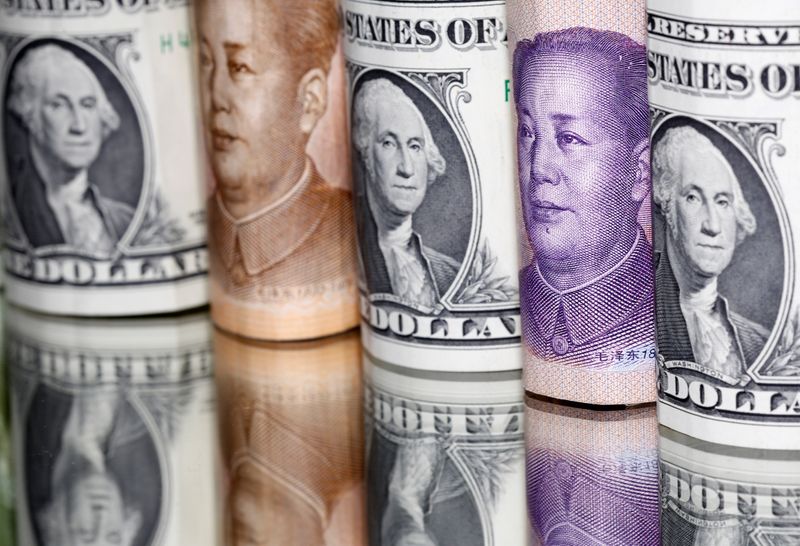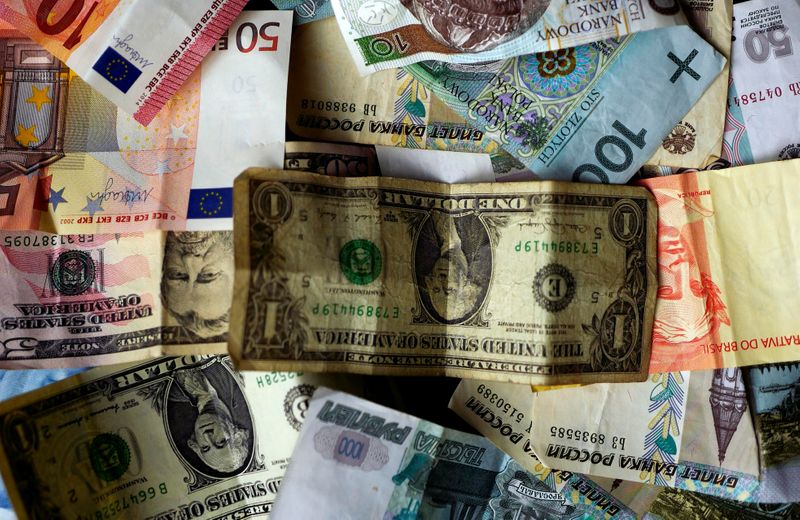NEW YORK (Reuters) – The safe haven Japanese yen gained on Friday and riskier currencies, including the Australian dollar, dropped as risk sentiment soured after U.S. President Donald Trump threatened to impose new tariffs on China over the coronavirus crisis.
Trump said on Thursday his hard-fought trade deal with China was now of secondary importance to the coronavirus pandemic and he threatened new tariffs on Beijing, as his administration crafted retaliatory measures over the outbreak.
“U.S. President Trump soured the mood in equity markets, raising his accusations against China about the coronavirus outbreak, threatening new tariffs,” Action Economics said in a report. “The yen has outperformed while commodity currencies have underperformed amid a sharp phase of risk-off positioning.”
The dollar fell 0.29% against the yen <JPY=> to 106.86 yen.
The Australian dollar <AUD=>, which on Thursday reached a seven-week high of $0.6569, dropped 1.54% to $0.6410.
The Chinese yuan also weakened in the offshore market <CNH=> to 7.1378 yuan, the most per dollar since April 2.
“Given the scale of the COVID-19 impact, there is certainly a high risk of geopolitical tensions escalating considerably as lockdowns reverse,” said Derek Halpenny, head of research at MUFG.
“This would clearly be another hit to global trade that would add a layer of dollar support going forward,” Halpenny said.
The euro <EUR=> continued to gain against the greenback, having also rallied on Thursday on month-end repositioning.
It was last up 0.17% at $1.0974, after earlier reaching $1.1017, the highest since April 1. <EUR=>
Much of Europe and Asia was closed on Friday for International Workers’ Day.
The greenback gained 0.94% against the Canadian dollar <CAD=>, which also suffered from the risk-off move.
Canada on Friday tapped Tiff Macklem, an experienced central banker who has been a leading voice in the country for the transition toward a green economy, as the Bank of Canada’s 10th central bank governor.
The dollar index against a basket of currencies <=USD> fell 0.04% to 99.08.
Deutsche Bank currency strategist George Saravelos said that if the United States imposes capital controls on China it would be dollar-negative, as that would imply outflows from greenback-denominated assets.
“If the move is politically driven, it would be a clear dollar negative in our view. It would lead to a shift in reserve holdings out of the USD into EUR, JPY, GBP, gold and other reserve proxies,” Saravelos said.
(Reporting by Karen Brettell; Additional reporting by Olga Cotaga in London; editing by Jonathan Oatis and Chizu Nomiyama)






















